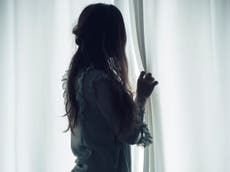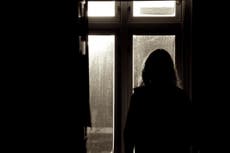Women with disabilities ‘more likely to suffer domestic abuse’
Exclusive: ‘An abuser actively seeks more vulnerable victims’ says refuge manager

Your support helps us to tell the story
From reproductive rights to climate change to Big Tech, The Independent is on the ground when the story is developing. Whether it's investigating the financials of Elon Musk's pro-Trump PAC or producing our latest documentary, 'The A Word', which shines a light on the American women fighting for reproductive rights, we know how important it is to parse out the facts from the messaging.
At such a critical moment in US history, we need reporters on the ground. Your donation allows us to keep sending journalists to speak to both sides of the story.
The Independent is trusted by Americans across the entire political spectrum. And unlike many other quality news outlets, we choose not to lock Americans out of our reporting and analysis with paywalls. We believe quality journalism should be available to everyone, paid for by those who can afford it.
Your support makes all the difference.Women with disabilities are more than twice as likely to be victims of domestic violence and suffer for longer, according to Britain’s largest provider of shelters.
Exclusive data from Refuge shows he abuse endured by women with disabilities lasts on average for nine years compared to the six and a half years experienced by other women.
The incidence rate of domestic ause is twice as high among women with disabilities, the charity found.
Refuge, which runs the National Domestic Abuse Helpline, has launched new features on its online helpline to ensure it is more accessible to women with disabilities in need of “life-saving and life-changing support”.
Some 14.1 million people - which amounts to 20 per cent of the UK population - reported having a disability in 2018/19.
Caroline*, a domestic abuse survivor with severe hearing loss, said: “He used my hearing difficulties against me to degrade and control me. He knew I couldn’t hear it when he would creep up behind me.
“Having a hearing impairment is isolating in itself, and you can feel rock bottom, but abuse is also isolating. It’s a double whammy because an abuser has no empathy, they use it against you to make you feel inferior and you feel so alone.”
Some 11 million people in the UK are deaf or hard of hearing, with Refuge’s helpline website’s new features comprising support from experts via British Sign Language, as well as improving support for blind and partially sighted women. The overhaul now means women can access help in Bengali, Spanish and Polish.
Charlotte Kneer, chief executive of Reigate and Banstead Women’s Aid refuge in Surrey, said: “In some cases, having a disability or being disabled can make you more dependant on your abuser and they will exploit that vulnerability.
“An abuser actively seeks more vulnerable victims so a disabled person who is dependant on a carer could be more at risk. A perpetrator will also use that person’s disability as a psychological weapon to belittle, demean and undermine their confidence.
“Part of the reason disabled people stay with abusers longer is the shortage of specialist services for disabled women. The shortage needs to be urgently rectified.”
Ms Kneer, a domestic abuse survivor whose violent partner was jailed for seven years in 2011, noted while they were converting one of their refuges to get disabled access, they realised very few refuges were able to accommodate disabled women.
Despite the high prevalence of domestic abuse among those with learning disabilities, just one in five refuges in England offers support for women with learning disabilities, according to Women’s Aid.
Ruth Davison, chief executive of Refuge, which supports more than 7,000 women and children every day, said: “We know there are many women experiencing domestic abuse across the country with additional needs and we want to ensure we are reaching them.
“Being deaf, hard of hearing, blind or having any other additional needs should never be a barrier to accessing support. Our message to all women is that you are not alone, and Refuge is here for you.”
A woman is killed by a current or ex-partner every four days in England and Wales. While a report released by MPs at the end of April last year revealed domestic abuse killings in the first 21 days of the first lockdown were double the total of an average period in the past decade.
While Marie Vickers, of SignHealth, a deaf health charity Refuge worked with on the new measures, said: “Throughout the pandemic, deaf women have not been able to access services via telephone helplines. This has added more barriers for deaf women to come forward and ask for support.”
*Name changed to protect identity
Anyone who requires help or support can contact the National Domestic Abuse Helpline which is open 24/7 365 days per year on 0808 2000 247 or via their website https://www.nationaldahelpline.org.uk/


Join our commenting forum
Join thought-provoking conversations, follow other Independent readers and see their replies
Comments